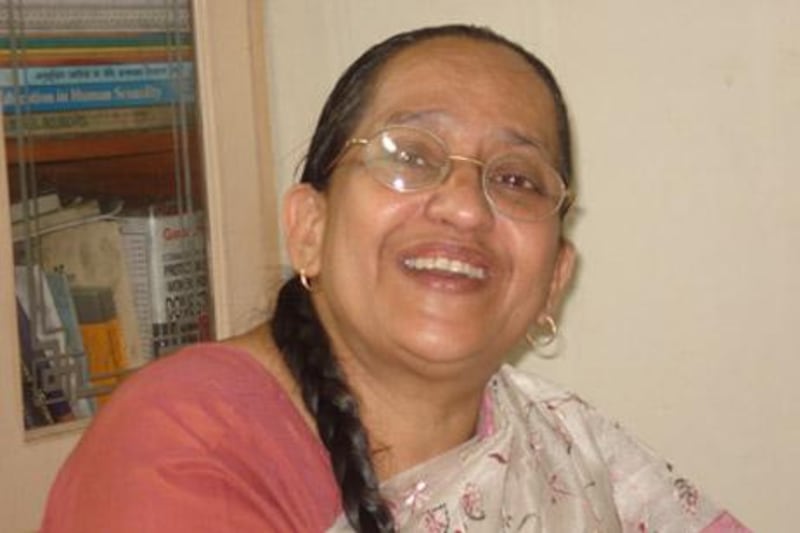MUMBAI // On most days, Varsha Deshpande is a small-town lawyer, practising in the state of Maharashtra. On others, she leads crusades against female foeticide, organizing sting operations across the state, hunting for clinics that offer illegal gender-selection abortions.
In every town she visits, Ms Deshpande first goes to the office of the local civil surgeon or the municipal corporation's medical officer to announce what she is going to do. It is, very often, redundant.
"Really, these people know exactly what's happening in their area," she said.
Ms Deshpande then finds the nearest women's self-help group and asks: "Where would I go to abort a girl foetus?"
The women always know which clinic has an ultrasound - what they call a ladka-ladki dekhne wala machine, which means a device that tells male and female foetuses apart.
She sends a pregnant woman with witnesses into the clinic. Sometimes they even bring hidden audio- or video-recording equipment. Ms Deshpande tries to catch doctors breaking the law against sex-selective abortions. "Some doctors write 16 or 19 on the patient's form," she said with a grim laugh, "because 16 can look like '1b,' indicating one boy, and 19 can look like '1g,' indicating one girl".
Ms Deshpande and her investigators don't request or insist on a sex-selection procedure. "The doctors offer it themselves," she said, "and we turn the evidence over to the authorities".
Ms Deshpande has conducted 33 sting operations. One has resulted in a conviction and imprisonment, while the others are at various stages of the legal process.
In the course of her work, Ms Deshpande said, she has seen some depressing scenes. She recalled one waiting room, in a hospital owned by a relative of a leading Maharashtra politician, where she spent several hours questioning 27 women. They all admitted they were hoping to abort their female foetuses.
Clinics charge up to Rs 19,000 (Dh1,570) for an illegal gender scan and abortion; a regular ultrasound costs Rs 1,000 or even less. But many of the state's residents, wealthier on average than those in other states, are able to afford the steep prices.
Since illegal abortions can be such money-spinners, authorities have little incentive to shut them down. Officials are paid off or, in some cases, even complicit; Ms Deshpande said she knew of a case in which a government-appointed civil surgeon has performed sex-selective abortions.
As the technology has improved and incomes have risen, the child-sex ratio - the ratio of girls to boys up to age 6 - has widened, particularly in affluent states such as Maharashtra.
In 1991, the child-sex ratio in Maharashtra was 946 girls per 1,000 boys; now it's 883 girls, according to the census conducted earlier this year. In the process, Ms Deshpande, a member of a national monitoring committee on female foeticide, estimates that about 500,000 female foetuses have been aborted in Maharashtra in the last decade.
In Mumbai, state authorities acknowledge that the numbers are grim. AL Dangat, a counselor with the Maharashtra State Commission for Women, pointed first to cultural practices that are deeply embedded in Indian society.
"Having a girl is still considered a social stigma," Mr Dangat said.
"And there is the burden of dowry, and the dowry system hasn't been fully eliminated."
But he also conceded that the state's policing of sex-selection procedures has failed. "We've formed district committees of doctors, and warned that doctors could lose their licenses," Mr Dangat said. "But we haven't been able to control it."
The commission is made up of seven members, experts selected from academia and medicine. They direct the work of staff officials such as Mr Dangat, but the commission has not met for nearly 18 months because vacancies on the commission have not been filled. Mr Dangat could not provide a reason, but he
said that "the members will be appointed in 10 or 15 days".
The sheer number of sonogram centres in Maharashtra - roughly 7,500, according to government statistics - makes it a challenge to track them all closely. Even new tracking technological ran into problems.
Two years ago, in the district of Kolhapur, a firm named Magnum Opus worked with authorities to outfit 250 ultrasound machines with Silent Observer. A piece of unobtrusive hardware, Silent Observer would store on a secure hard disk every sonogram taken, along with the patient's records.
However, the device can be used only in hindsight. Authorities suspecting certain clinics of offering illegal abortions - or even suspecting specific families of opting for them - can mine its database to see if abortions have happened.
If a sonogram shows a foetus's gender and no birth defects, and if the mother, months later, has not delivered a baby, it indicates that a sex-selective abortion may have taken place, said Yogesh Raut, a vice president at Magnum Opus.
"The authorities conduct random checks, or target particular cases," Mr Raut said.
Silent Observer's success was patchy. "Doctors simply turned off the power to the hardware when they wanted to determine the baby's sex," Mr Raut said, "or they found other ways to work around the hardware."
His firm has now developed a replacement, which uses the ultrasound machine's own power supply and makes it harder to deactivate. "We started deploying Active Tracker a couple of months ago," Mr Raut said. "We believe it's making a difference."
But Sharada Sathe, secretary of a Mumbai-based non-profit called the Stree Mukti Sanghatana, called the Kolhapur experiment "nonsense", pointing out that technology regularly is subverted in India's battle against female foeticide.
Ms Sathe, who served on the first-ever Maharashtra State Commission for Women, said that technological solutions were impotent without the administrative muscle to enforce them.
"But the technology to choose a baby's gender even before conception - at inception itself - already exists, and soon it will become cheaper," she said. "What will we do then? In the 1980s and 1990s, the situation was bad. Now it has simply become unmanageable."





